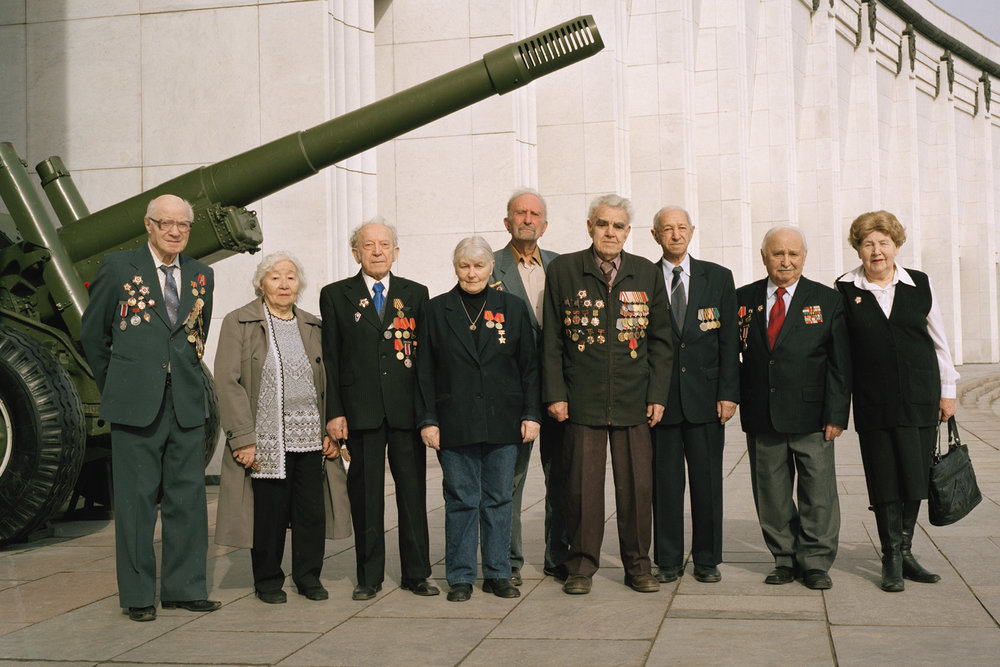Oral history, testimonies of Jewish soldiers who fought in the Soviet Army during World War II added to Visual History Archive

Editor's note: Today, as part of its periodic Visual History Archive update, USC Shoah Foundation is adding 43 testimonies to the Archive. This story highlights a partnership that played a crucial role in the expansion.
The USC Shoah Foundation and the Blavatnik Archive announced today a partnership that will provide researchers and the general public digital access to extensive oral narratives of 25 Jewish soldiers who fought for the Soviet Army during World War II.
Recorded between 2006 and 2014 by the New York-based Blavatnik Archive – part of its Veteran Oral History Project – the testimonies significantly expand the number of Jewish-Russian veterans in USC Shoah Foundation’s Visual History Archive and their descriptions about life in the USSR before, during and after the war.
“While the tragedy of the Holocaust and the brutal victimization of the Jews has been the focus of extensive study, the role of Jewish soldiers in the fight against Nazi Germany – and their experience as victors – remains largely unknown,” said Julie Chervinksy, director of the Blavatnik Archive, which is supported by the Blavatnik Family Foundation.
“This collection shines a light on this under-researched aspect of World War II. By sharing it with the USC Shoah Foundation’s Visual History Archive, we feel confident that the collection will not only live on for generations, but also be widely accessible to scholars, students and the general public,” she said.
The USC Shoah Foundation, which has collected testimonies of survivors of the Holocaust and other genocides, has helped index the 25 soldiers’ Russian-language stories as part of a searchable database.
“This incredible collection of Russian language testimonies will greatly enhance USC Shoah Foundation’s archive of 55,000 witnesses to genocide, and we look forward to continuing to partner with the Blavatnik Family Foundation in bringing in more testimonies,” said Stephen Smith, Finci-Viterbi Executive Director at USC Shoah Foundation.
Chervinksy said the veterans, many in their 80s when interviewed, were mostly teenagers during the war. From front-line soldiers to medical personnel, including four women and one POW, they talk about family members lost in the Holocaust and their pride in defeating the Nazis. The archive includes war-time diaries, photographs and other mementoes as part of its overall collection of nearly 113,000 physical assets.
To be searchable across USC Shoah Foundation’s collection, the new testimonies needed to be integrated into its indexing system. Its indexing team mapped the elements and syntax of the Blavatnik Archive’s metadata scheme onto that of USC Shoah Foundation’s testimonies.
The Blavatnik Archive also prompted USC Shoah Foundation’s indexing team to create several new indexing terms relating to World War II military experiences in the Soviet Union, including:
* The Battle of Khar'kov (May 12 - May 29, 1942
* The Battle of Stalingrad (Aug. 23, 1942 – Feb. 2, 1943)
* Order No. 227 of the People's Commissar of Defence of the USSR (July 28, 1942)
The digital search function becomes operational today. It’s accessible worldwide at about 150 institutions, mostly universities, libraries, and museums, at https://sfi.usc.edu/vha/access.
About the Blavatnik Archive
The Blavatnik Archive is a nonprofit foundation dedicated to preserving and disseminating primary resources that contribute to the study of 20th-century Jewish and world history, with a special emphasis on World War I, World War II and the interwar period. The Archive was founded in 2005 by the American industrialist and philanthropist Len Blavatnik to reflect his commitment to cultural heritage, explore his interest in historical events and people, and expand his support for primary resource-based scholarship and education.
Media contact:
Julie Chervinsky
jchervinsky@blavatnikarchive.org
About USC Shoah Foundation
USC Shoah Foundation — The Institute for Visual History and Education is dedicated to making audio-visual interviews with survivors and other witnesses of the Holocaust and other genocides, a compelling voice for education and action. The Institute’s collection of 55,000 eyewitness testimonies contained within its Visual History Archive preserves history as told by the people who lived it, and lived through it. Housed at the University of Southern California, within the Dana and David Dornsife College of Letters, Arts and Sciences, the Institute works with partners around the world to advance scholarship and research, to provide resources and online tools for educators, and to disseminate the testimonies for educational purposes.
Media contact:
Josh Grossberg
josh.grossberg@usc.edu
Like this article? Get our e-newsletter.
Be the first to learn about new articles and personal stories like the one you've just read.